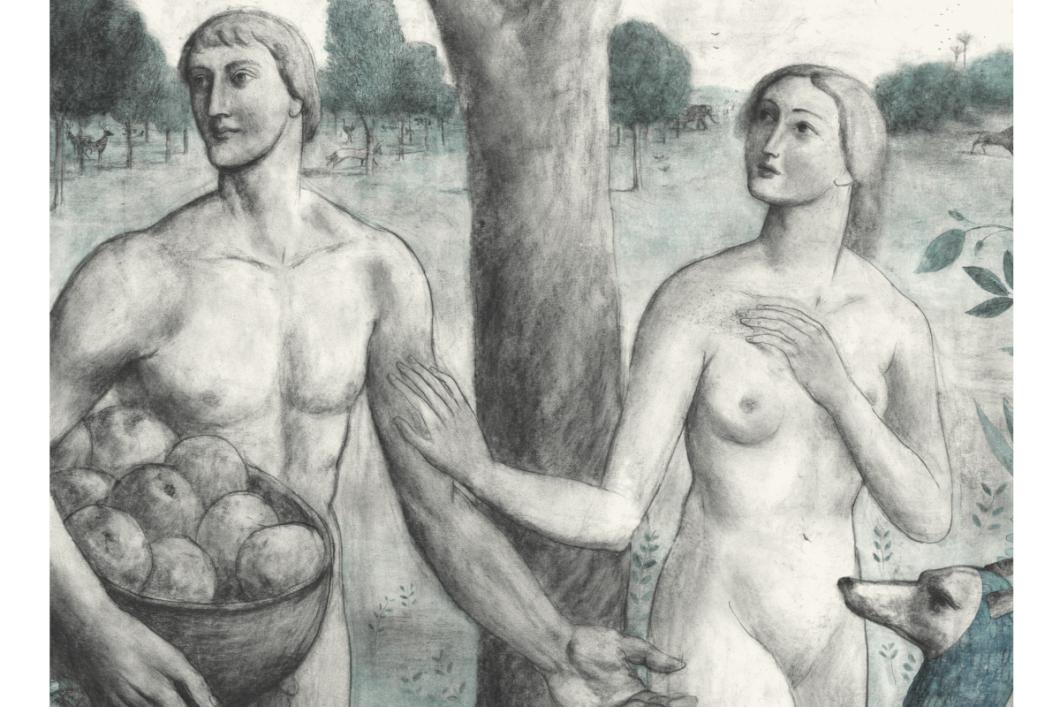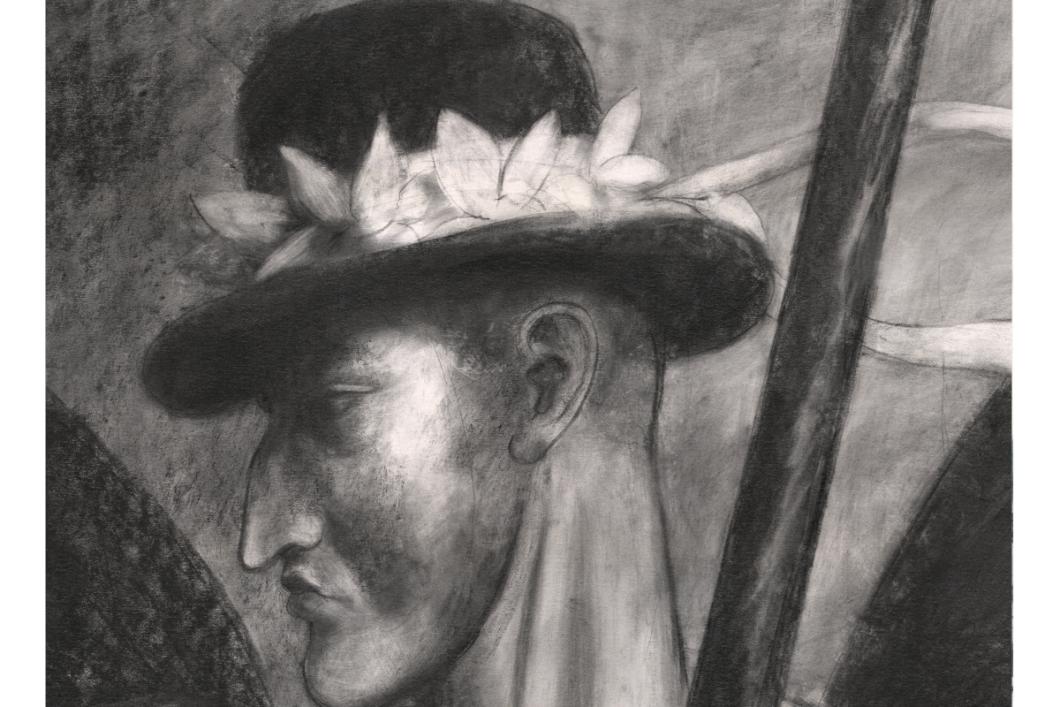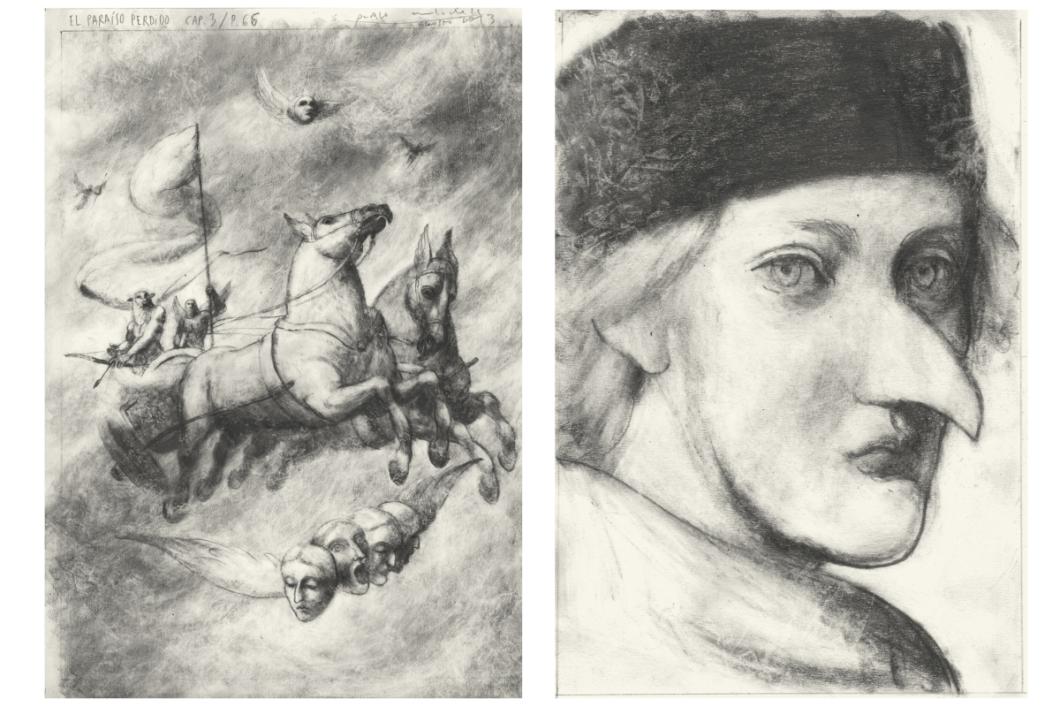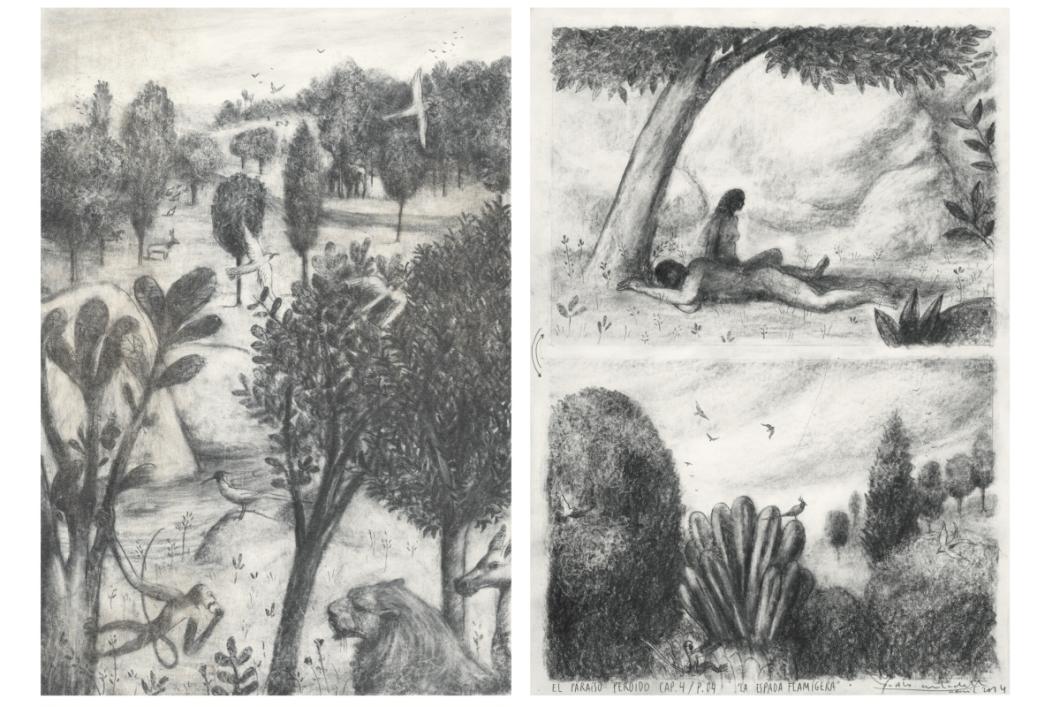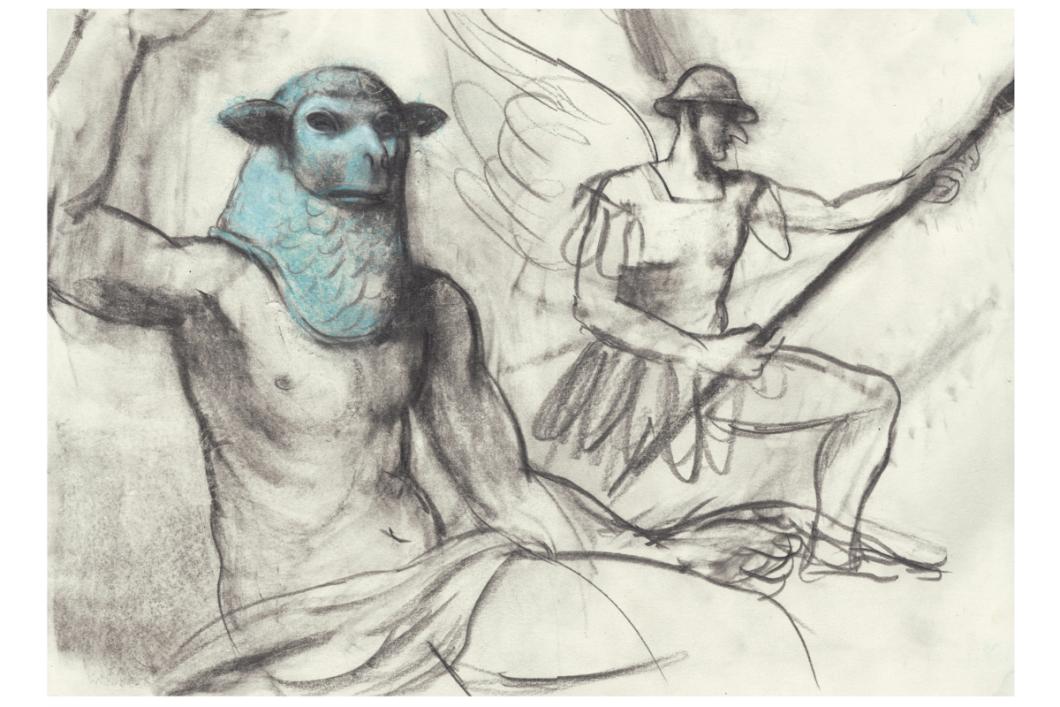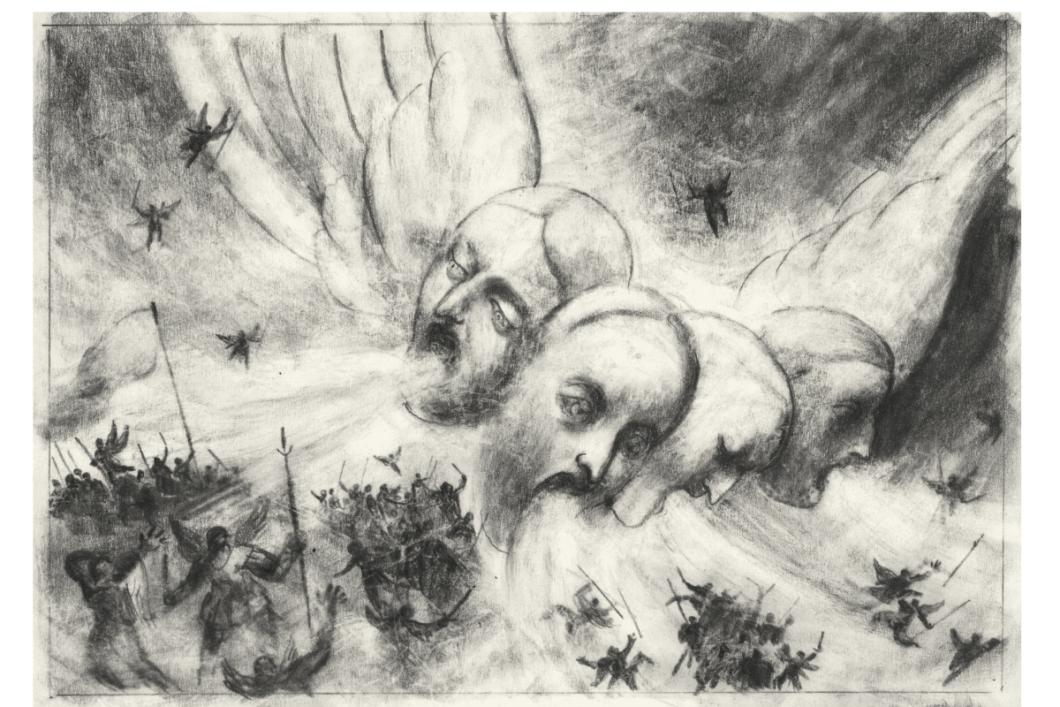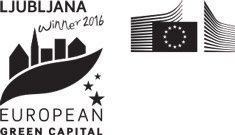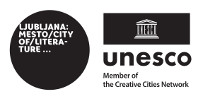Pablo Auladell: John Milton’s Paradise Lost
In 2016, Pablo Auladell (Alicante, 1972) received the National Comic Book Award for his graphic novel adaptation of Paradise Lost (1667), John Milton’s masterpiece that made him one of the most celebrated English poets of the Baroque.
The epic poem, over its twelve books and more than 10,000 verses, tells the story of two falls: that of Satan, banished from the Kingdom of Heaven and sent to hell, the place where the damned suffer eternal punishment and where then fallen angel will reign for evermore, and that of Adam and Eve, expelled from Paradise and condemned to live in a world where sin is rampant and death is unavoidable.
Milton’s Paradise Lost delves into the abysses of hell and the human psyche, into the dichotomy between divine omnipotence and the free will of men, between good and evil, between acceptance and rebellion. Pablo Auladell delves, in turn, into Milton’s Paradise with his own contemporary interpretation, an adaptation that explores the poem and transfers it to a different medium. The book earned him the Spanish National Comic Book Award for its “great artistic value, visual strength, original use of iconography and a narrative that manages to be both archetypal and fully current.”
The Pablo Auladell exhibition. El Paraíso perdido de John Milton (John Milton’s Paradise Lost) brings together a selection of 47 illustrations divided into four parts: Satán (Satan); Un jardín de delicias (A garden of delights); Los primeros recuerdos del mundo (The world’s earliest memories); and La espada flamígera (The flaming sword). In addition to admiring the illustrations, visitors can take in the story since the works have been positioned in the order in which they appear in the graphic novel and are supplemented by texts that help them follow the narrative. The creative process to adapt the poem also has a place in this exhibition, the content of which was devised, planned and designed over five years.
The exhibition takes place in 2024 to mark the 350th anniversary of the death of John Milton.
Curators of the Exhibition: We Art Exhibitions
AUTHOR’S PREFACE:
In 2010, Huacanamo, a Publisher dedicated mostly to poetry, approached me with an unusual proposal: to adapt into a graphic novel John Milton’s Paradise Lost, the colossal seventeenth-century poem and key work of English literature. A comic book eventually appeared containing the chapter featured here under the title “Satan”, but the project was interrupted for a number of reasons. I forgot about the whole thing and embarked on other adventures.
Two years later, the digital publisher Minos asked me to return to, and finish, the adaptation, which I arranged into three more chapters executed over the following three years. The final result of this long process (which now ends or beings, depending on how you look at it, with this publication) feels inconsistent to me, perhaps as a result of the unusually long time it took me to execute it, including the two years when the project was in limbo.
As I finished the work, I realized that, although the intention and the purpose of my adaptation remained the same (enriched, perhaps, by the nuances that come from concentrating on a single story over a long period of time), significant differences had developed in some characters appearances, and in some of the settings and colouring: I was not the same draughtsman who had started drawing all those years ago and, naturally, many of my own standards had changed.
Although there was an almost unbearable moment when I was close to throwing it all away, convinced that I had to redraw the entire book, in the end I only retouched what was strictly necessary to ensure a certain aesthetic and narrative cohesion. I thought there was some beauty in observing that evolution and preserving those undisguised scars, the early sketches, the better pages, the pentimenti and the setbacks. The book as witness, both a balance and a record of the progress and the failures in work spanning several years. In the end, I wanted it to reflect the life that happened in parallel to the mornings and evenings when, harnessing a combination of will, confidence and uneven good fortune, I leaned over these pages.
In my case, I still harbour the feeling so clearly expressed by illustrator Józef Wilkon: only now that I have finished drawing it do I feel truly ready to start drawing Paradise Lost.
Pablo Auladell
 Tickets
Tickets
Admission free


